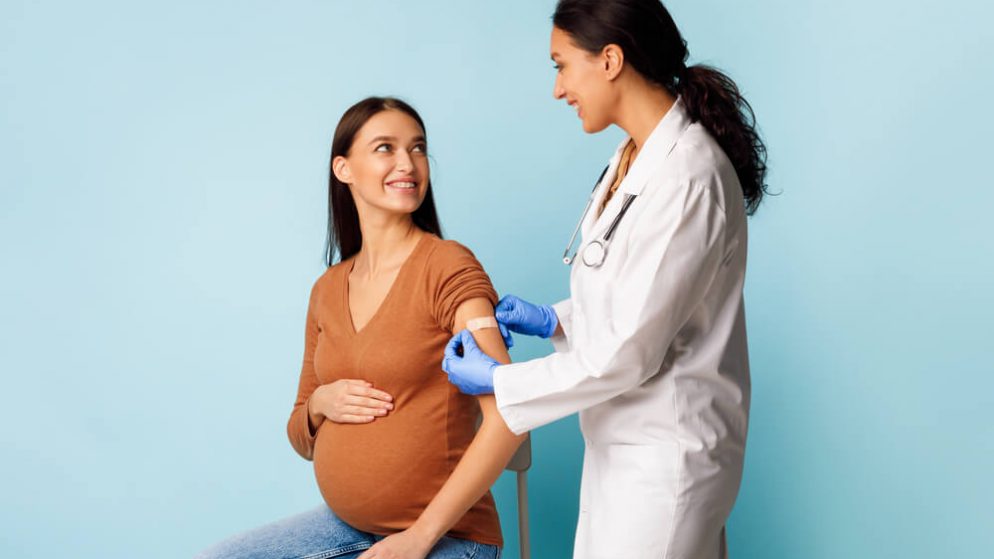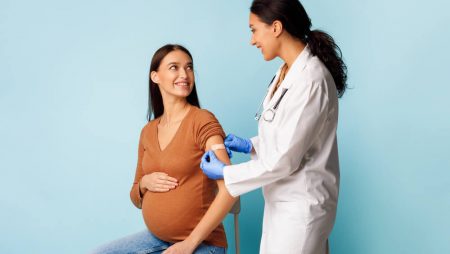



Get new exclusive access to healthcare business reports & breaking news




Pfizer Inc. announced August 21st that the U.S. Food and Drug Administration (FDA) has approved ABRYSVO™ (Respiratory Syncytial Virus Vaccine), the company’s bivalent RSV prefusion F (RSVpreF) vaccine, to prevent respiratory syncytial virus infections in infants from birth up to six months, by inoculating pregnant individuals between the 32 and 36 week of pregnancy.
ABRYSVO is non adjuvanted and composed of two preF proteins selected to optimize protection against RSV A and B strains and was observed to be safe and effective.
Pfizer, which is also hoping to further its research in cancer treatment, after announcing it will purchase Seagen, is not the only company to advance RSV vaccines. Moderna is seeking to replace waning COVID vaccine sales with other products, such as its experimental flu and RSV vaccines that also use messenger RNA technology.
After being approved by the FDA, in May, for the prevention of LRTD caused by RSV in individuals 60 years of age and older, now the vaccine could be used to save the most vulnerable category, that of newborns.
The U.S. Food and Drug Administration approved Abrysvo (Respiratory Syncytial Virus Vaccine), which is the first vaccine approved for use during pregnancy to prevent lower respiratory tract disease (LRTD) and severe LRTD caused by respiratory syncytial virus (RSV) in infants. Abrysvo is administered as a single dose injection into the muscle. The FDA approved Abrysvo in May for the prevention of LRTD caused by RSV in individuals 60 years of age and older.
In July, Pfizer Inc. announced the Committee for Medicinal Products for Human Use (CHMP) of the European Medicines Agency (EMA) has adopted a positive opinion, recommending the granting of a marketing authorization for Pfizer’s respiratory syncytial virus (RSV) vaccine candidate, PF-06928316 or RSVpreF, for both older adults and maternal immunization to help protect infants.
The CHMP’s positive opinion was under review by the European Commission (EC). The EC will take the CHMP’s recommendation under advisement to decide whether to approve RSVpreF, whose trade name in the European Union (EU) will be ABRYSVO®. The EC’s final decision would apply to all 27 EU member states plus Iceland, Liechtenstein, and Norway.
RSV is a highly contagious virus that causes respiratory infections in individuals of all age groups. It is the most frequent cause of lower respiratory tract illness in infants worldwide.
“RSV is a common cause of illness in children, and infants are among those at highest risk for severe disease, which can lead to hospitalization,” said Peter Marks, M.D., Ph.D., director of the FDA’s Center for Biologics Evaluation and Research. “This approval provides an option for healthcare providers and pregnant individuals to protect infants from this potentially life-threatening disease.”
In most parts of the U.S., RSV circulation is seasonal, typically starting during the fall and peaking in the winter. The virus is especially common in children, and most individuals can be expected to be infected with RSV by the time they reach two years of age. While RSV most often causes cold-like symptoms in infants and young children, it can also lead to serious LRTD such as pneumonia and bronchiolitis (swelling of the small airway passages in the lungs). In infants and children, the risk of RSV-associated LRTD is highest during the first year of life. According to the Centers for Disease Control and Prevention, RSV is the leading cause of infant hospitalization in the U.S.
The safety and effectiveness of Abrysvo for immunization of pregnant individuals to prevent LRTD and severe LRTD caused by RSV in infants from birth through 6 months of age was evaluated in ongoing, randomized, placebo-controlled international clinical studies.
“ABRYSVO’s approval as the first and only maternal immunization to help protect newborns immediately at birth through six months from RSV marks a significant milestone for the scientific community and for public health,” said Annaliesa Anderson, Ph.D., Senior Vice President and Chief Scientific Officer, Vaccine Research and Development, Pfizer. “We are incredibly grateful to the clinical trial participants and study investigator teams around the world, as well as our Pfizer colleagues, for their commitment to making this vaccine available. Today, a long-sought-after goal to deliver a maternal vaccine that will help protect infants six months of age or younger – when they are at greatest risk of possible serious consequences from RSV – has been achieved.”
The clinical study evaluated the effectiveness of Abrysvo to prevent LRTD and severe LRTD caused by RSV in infants born to individuals who were vaccinated during pregnancy. Among approximately 3,500 pregnant individuals who received Abrysvo, compared to approximately 3,500 pregnant individuals who received placebo, Abrysvo reduced the risk of severe LRTD by 81.8% within 90 days after birth, and 69.4% within 180 days after birth. In a subgroup of pregnant individuals who were 32 through 36 weeks gestational age, of whom approximately 1,500 received Abrysvo and 1,500 received placebo, Abrysvo reduced the risk of LRTD by 34.7%, and reduced the risk of severe LRTD by 91.1% within 90 days after birth when compared to placebo. Within 180 days after birth, Abrysvo reduced the risk of LRTD by 57.3% and by 76.5% for severe LRTD, when compared to placebo.
The FDA is requiring the company to conduct postmarketing studies to assess the signal of serious risk of preterm birth and to assess hypertensive disorders of pregnancy, including pre-eclampsia.
The application was granted Priority Review status and Fast Track and Breakthrough Therapy designations.